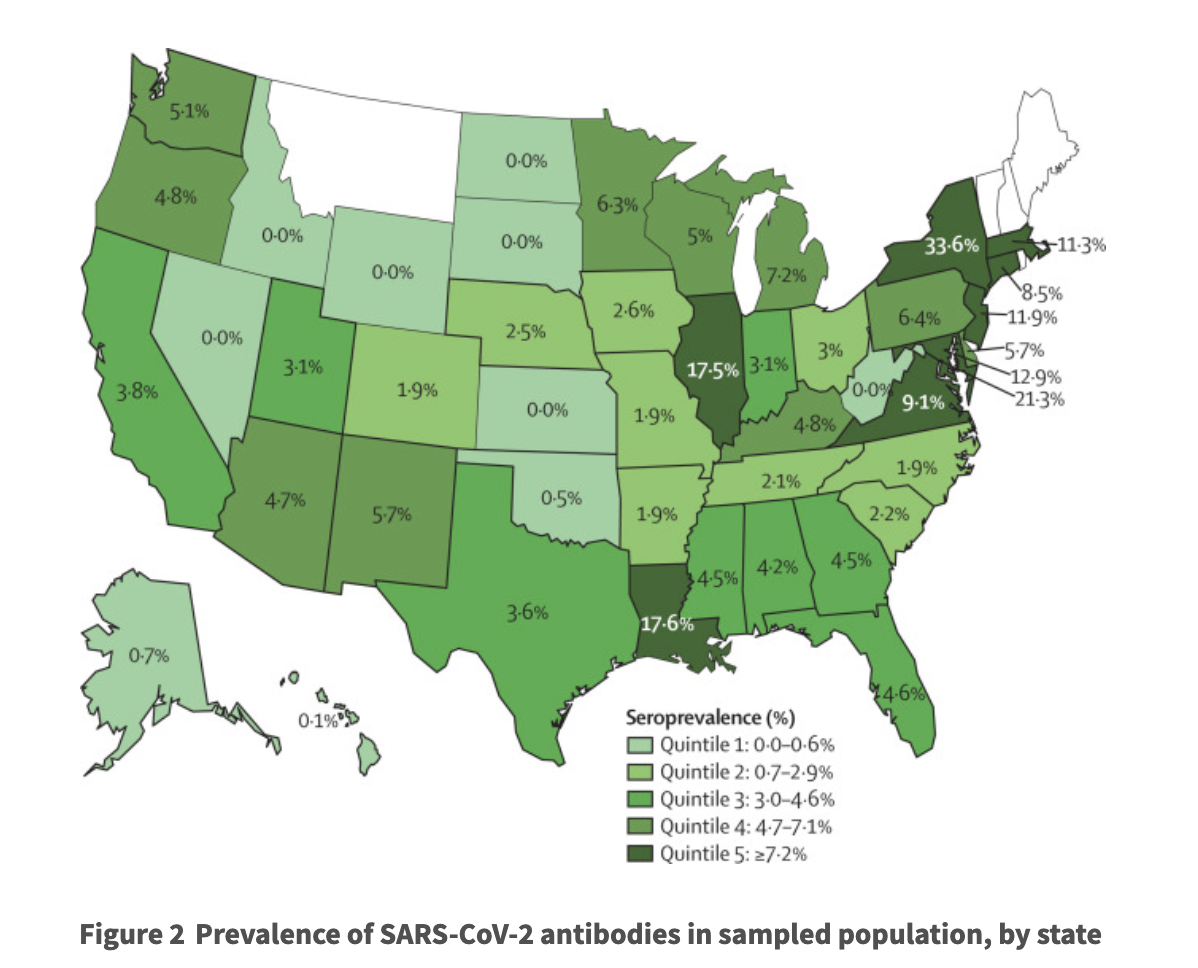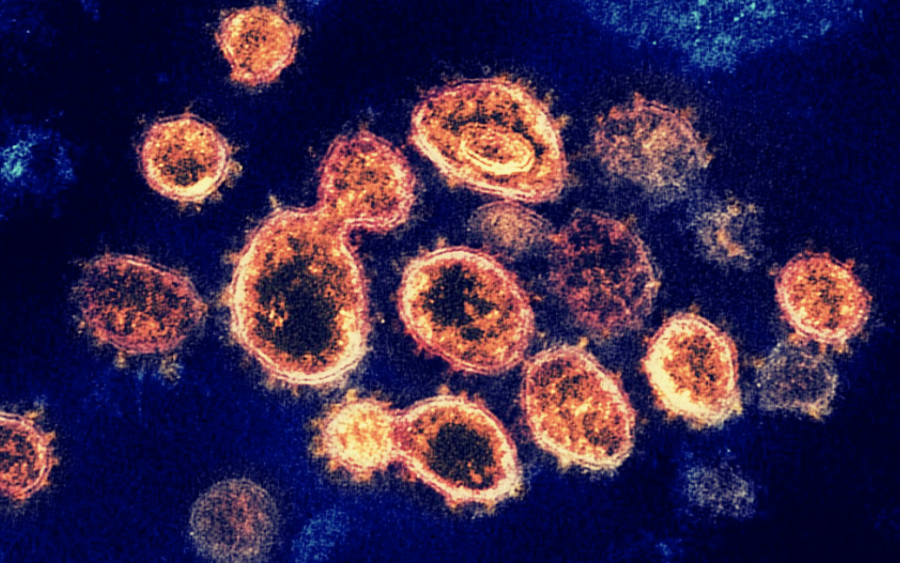Now nearly seven months into the pandemic, the world has seen a wide gamut of strategies to battle the coronavirus. In Sweden, the futile attempt to induce herd immunity led to a sharp increase in the number of deaths nationwide. In the U.S., despite nearly 7.5 million documented infections and over 200,000 reported deaths, a new study published in The Lancet on Sept. 25 found that under 10% of Americans have antibodies against the coronavirus.
This study, from approximately 1,300 dialysis facilities across the U.S., looked at blood samples from about 28,500 patients on dialysis in 46 states. Despite a summer with days that averaged over 70,000 confirmed cases, the study found a 9.3% seroprevalence rate for antibodies against the coronavirus.
The results of the study showed a highly variable seroprevalence rate — states such as Oregon had a 4.8% seroprevalence and New York with a 33.6% seroprevalence rate — and included data as of July 2020.
Since the study looked at patients undergoing dialysis, oftentimes people with underlying health conditions, it could be a “lower-end estimate” since these are typically the people who would be more cautious about becoming infected, according to Will Humble, former director of the Arizona Department of Health Services and current Executive director of the Arizona Public Health Association.
RELATED: A poopy situation: The proactive use of wastewater testing as a leading indicator of infection
Humble added that state dashboards which display serology positive rates could be biased the other way because the average candidate who pays for a COVID-19 antibody test most likely has reason to believe they were infected. The most recent estimates on the Arizona Department of Health Services website shows an 11.0% positive serology rate, much different than the 4.7% that resulted from The Lancet study.
This estimate has big implications going forward because it goes to show how far the U.S. truly is from herd immunity even with over 200,000 confirmed deaths, albeit some experts touting it as an effective strategy.

Original study: https://www.thelancet.com/journals/lancet/article/PIIS0140-6736(20)32009-2/fulltext
In a Senate hearing earlier this week, Dr. Robert Redfield, director of the Centers for Disease Control, emphasized that the vast majority of the American population still remains at risk from contracting the coronavirus.
“The CDC is in the process of a very large, sequential study across the entire United States measuring serology. The preliminary results in the first round show that a majority of our nation, more than 90% of the population, remains susceptible,” Redfield said during the hearing. “A majority of Americans are still susceptible to this virus.”
Redfield added that the published study is expected to be released sometime next week. Redfield argued that face coverings and masks are one of the “greatest weapons” against the pandemic. Although the Centers for Disease Control and Prevention warns against wearing masks with vents or valves, surgical masks — among other types — have been proven, time after time, to prevent transmission of the virus.
“Masks are recommended as a simple barrier to help prevent respiratory droplets from traveling into the air and onto other people when the person wearing the mask coughs, sneezes, talks or raises their voice,” the agency said.
Follow Amit Syal on Twitter









